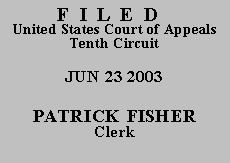

Defendant Angel Corona-Arreola pled guilty to illegal reentry after deportation, in violation of 8 U.S.C. § 1326, and was sentenced to a term of imprisonment of 77 months. Defendant appeals his sentence. We exercise jurisdiction pursuant to 28 U.S.C. § 1291 and 18 U.S.C. § 3742(a) and affirm.
Defendant's counsel has filed a brief pursuant to Anders v. California, 386 U.S. 738, 744 (1967) (permitting counsel who considers an appeal to be wholly frivolous to advise the court of that fact, request permission to withdraw, and submit a brief referring to portions of the record that arguably support the appeal). Counsel has filed a motion to withdraw and, as required, has provided copies of the Anders brief and the motion to withdraw to defendant. Defendant has filed a pro se brief asserting that the district court improperly calculated his sentence. Pursuant to our duty under Anders, we have conducted an independent review of the record and find no basis for reversing defendant's sentence.
According to the record, defendant entered the United States illegally in 1978. In November 1989, he became a legal permanent resident of the United States. In February 1993, he was convicted of second degree robbery in California state court, and in January 1994, he was convicted of felony possession of drugs in California state court. Defendant was deported in November 2000.(1) In October 2001, defendant was discovered in the United States passing counterfeit Federal Reserve notes. Following his arrest, defendant was charged with illegal entry after deportation. The government filed a notice of sentence enhancement based on his 1994 felony drug conviction.
The presentence report found that defendant was deported after conviction of an aggravated felony constituting a crime of violence (the 1993 California robbery conviction), and recommended a sixteen-level sentence enhancement pursuant to U.S.S.G. § 2L1.2(b)(1)(A)(ii). Defendant objected to the proposed enhancement and argued that the 1993 robbery conviction did not immediately precede his deportation, and that the notice of sentence enhancement did not refer to the 1993 robbery conviction. The district court adopted the sentence calculations of the presentence report and sentenced defendant to a term of imprisonment of 77 months.
We find no error on the part of the district court in overruling defendant's objections to the sixteen-level sentence enhancement. In United States v. Soto-Ornelas, 312 F.3d 1167 (10th Cir. 2002), we addressed a similar situation and rejected the argument that only the felony immediately preceding a defendant's deportation can be used to enhance a defendant's sentence under § 2L1.2(b)(1)(A). We concluded it is proper for a sentencing court to consider a defendant's entire criminal history in determining whether the enhancement is applicable. Defendant suggests in his pro se brief that his case is distinguishable from Soto-Ornelas because he was a legal permanent resident at the time of his 1993 robbery conviction. However, by its express language, the § 2L1.2(b)(1)(A) enhancement hinges solely on the existence of a pre-deportation felony. Thus, residency status at the time of such a felony is irrelevant.
In Soto-Ornelas, we also rejected the notion that the existence of a pre-deportation felony is an element of a § 1326 offense that must be listed in the indictment. Citing Almendarez-Torres v. United States, 523 U.S. 224, 235 (1998), we concluded the existence of a prior felony or felonies for purposes of § 1326 is a sentencing factor that simply authorizes a court to increase the sentence for a recidivist. 312 F.3d at 1170. We determined it was proper for the sentencing court in Soto-Ornelas to impose a sixteen-level enhancement pursuant to § 2L1.2(b)(1)(A) on the basis of a pre-deportation felony conviction that differed from the one listed in the indictment and that was not mentioned by the government until the presentence report was issued. In light of that holding, we fail to see how, as suggested by defendant, the district court here was limited to the pre-deportation felony identified by the government in its notice of sentence enhancement.
As a final matter, we note that during the sentencing hearing, defendant's trial counsel moved to withdraw based on defendant's alleged desire to assert a claim of ineffective assistance of counsel. Although the district court granted the motion, defendant does not mention such a claim in his pro se brief. Further, we find no basis in the record on appeal for deviating from the general rule that claims of constitutionally ineffective counsel should be brought on collateral review and not on direct appeal. E.g., United States v. Galloway, 56 F.3d 1239, 1242 (10th Cir. 1995).
AFFIRMED. Counsel's motion to withdraw is GRANTED.
Entered for the Court
Mary Beck Briscoe
Circuit Judge
*.This order is not binding precedent, except under the doctrines of law of the case, res judicata, and collateral estoppel. The court generally disfavors the citation of orders and judgments; nevertheless, an order and judgment may be cited under the terms and conditions of 10th Cir. R. 36.3.
1. Although defendant disputes it, the record on appeal suggests he was deported twice.